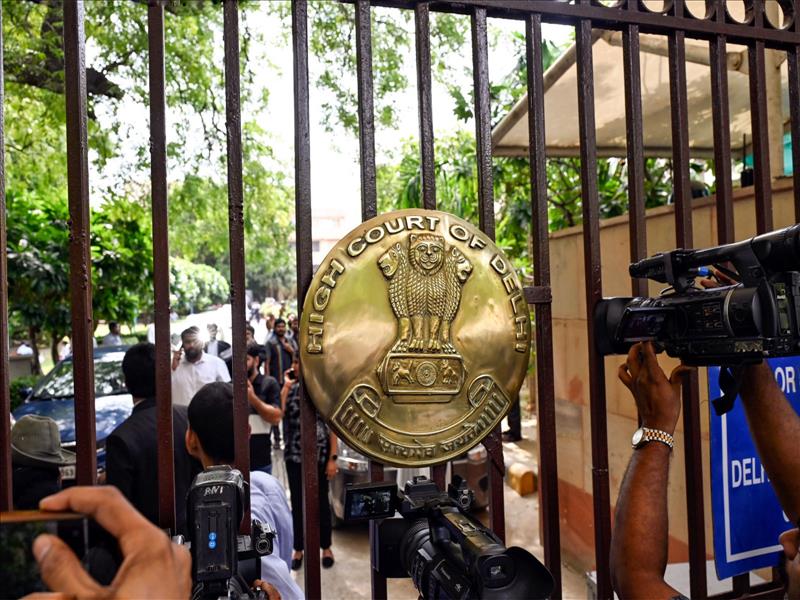
HC Keeps Sexual Assault Case Against Husband Alive
File photo of Delhi High Court
New Delhi~ The Delhi High Court has refused to quash a case against a man accused of sexually assaulting a minor girl who is married to him, saying the court cannot carve out an exception in the statute which criminalises sexual relations with a minor.
The court said it is moved by the circumstances, but it is bound by the statute, and this is one of those hard cases where the pull of equity is strong but the command of the statute is stronger.
The court was dealing with a plea in which a man and his parents sought quashing of a criminal case lodged against them for offences under the Protection of Children from Sexual Offences (POCSO) Act and the Prohibition of Child Marriage Act after the victim said she does not want any action against her husband, with whom she has a child, and in-laws and that she was never sexually assaulted.
ADVERTISEMENTJustice Sanjeev Narula refused to quash the FIR, lodged in 2023, saying that to snuff out the prosecution at the threshold would risk sending a message that child marriages and sexual relationships with minors can be sanitised by arranging a ceremony and continuing cohabitation.
The high court said quashing the case in such circumstances would inevitably be perceived as judicial endorsement of the notion that underage marriages can be insulated from legal consequences, so long as the parties subsequently present themselves as a settled family.
It said courts cannot create exceptions for“near majority consensual relationships” when the consent of a person below the age of 18 years is irrelevant under the POCSO Act.
“Under the POCSO Act, read with the then prevailing provisions of the IPC, any sexual act with a person under 18 is criminalised per se, without importing 'consent' as a constituent element once the victim is a child,” it said.
The judge said since the Parliament has fixed 18 as the age below which the law refuses to recognise sexual consent, this court, exercising jurisdiction under Article 226 of the Constitution, in the guise of doing equity, cannot write in a judge-made exception for 'near-majority, consensual relationships'.
To do so would be to cross the line from interpretation into legislation, the court said.
It added that subsequent developments in the relationship involving a minor, however compelling in equity, including the couple living together, the birth of a child, and the victim's present stance of no objection, cannot retrospectively legalise conduct which the law, at the time it occurred, treated as an offence.

Legal Disclaimer:
MENAFN provides the
information “as is” without warranty of any kind. We do not accept
any responsibility or liability for the accuracy, content, images,
videos, licenses, completeness, legality, or reliability of the information
contained in this article. If you have any complaints or copyright
issues related to this article, kindly contact the provider above.


















Comments
No comment